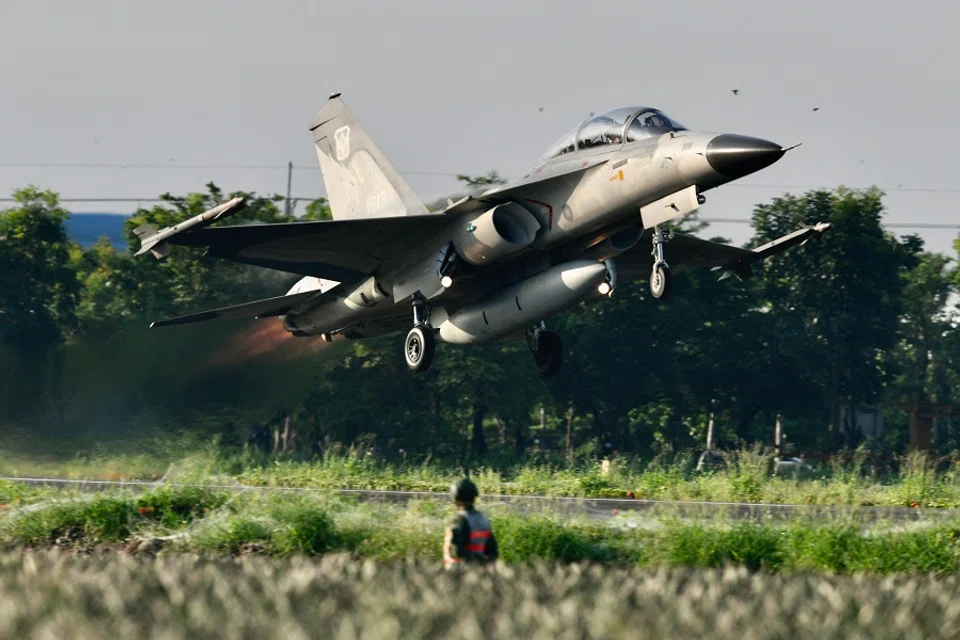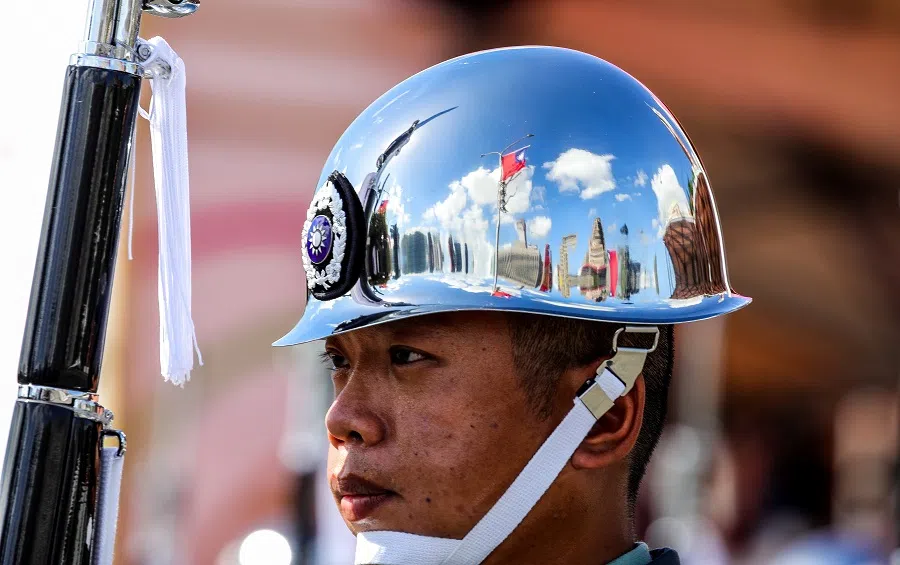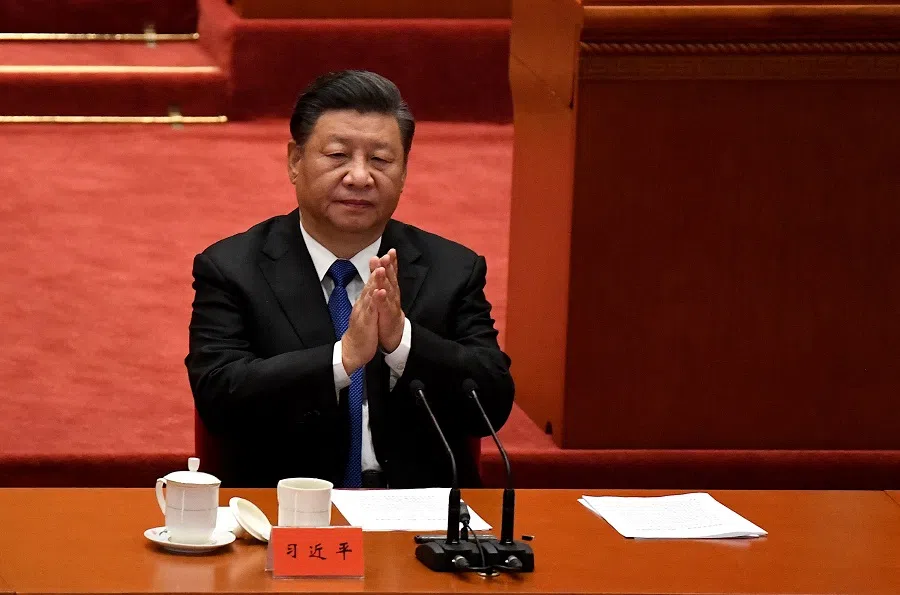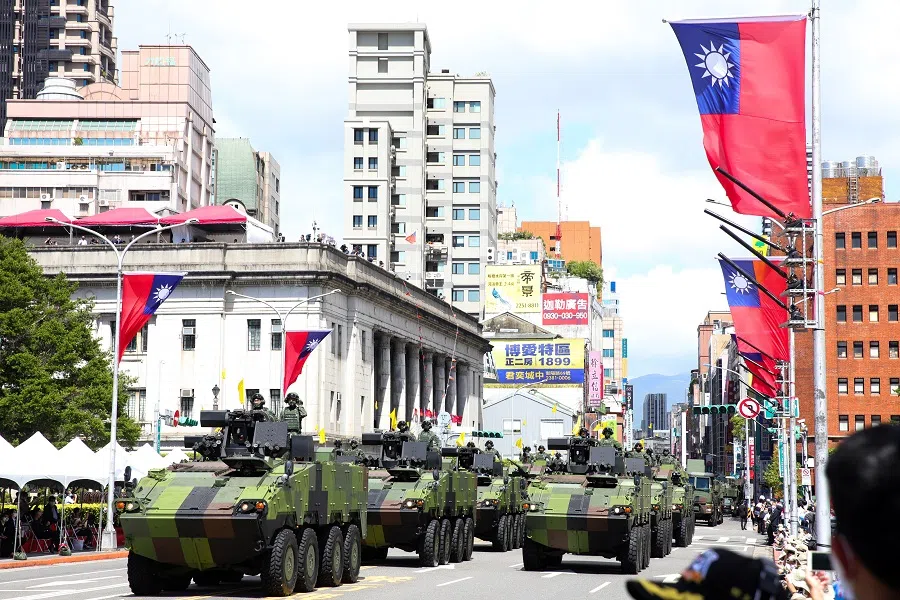Domestic politics and mainland China's growing incursions into Taiwan's air defence zone
Mainland China's recent aggressive flexing of muscles in Taiwan's air defence identification zone tests the latter's air defence capabilities and inflicts psychological warfare on the Taiwanese. Nonetheless, says Loro Horta, Beijing knows very well what it is doing. While the number of incursions has increased in frequency and number of aircraft involved, the PLA has not violated actual Taiwanese sovereign airspace. In the lead-up to key political events in the Chinese Communist Party's calendar, such incursions may continue.

On 1 October and 3 October, mainland China conducted two of the largest air incursions into Taiwan's air defence identification zone (ADIZ). What is behind this sudden increase in air operations? In the past two years, the People's Liberation Army Air Force (PLAF) and naval aviation have conducted numerous incursions into Taiwan's ADIZ. Most analysts have explained these growing incursions in military terms and centred their analyses on Taiwan. However, Beijing's growing aggressiveness is primarily motivated by the mainland's domestic politics.
Several observers rightly point out that mainland Chinese air incursions serve several tactical and operational objectives. With such incursions, the PLAF and navy aviation can test Taiwan's air defence and find out vital information. Which Taiwanese air base responds when mainland Chinese fighters approach from a certain route and how long do they take to react? How many fighters do the Taiwanese scramble to meet a particular number of mainland Chinese fighters? What is the level of coordination between Taiwan's fighter jets, air defence missile batteries and other branches of the military?
The incursions also serve to wear down Taiwan's much smaller air force and exhaust its crew by constantly forcing them to scramble its fighters to meet those of the mainland's. These incursions also force Taiwan to expose its radar, missile batteries and other support installations to mainland Chinese identification. Most importantly perhaps it's the psychological impact it has on Taiwan's population. These incursions cause uncertainty and anxiety, and affect the economy by scaring off investors. The ultimate aim of such a strategy, so argue some observers, including senior US officials, is to lay the conditions for an eventual military takeover of the island.

Inside the Forbidden City
While the reasons mentioned above provide us useful clues in understanding mainland China's growing assertiveness over Taiwan, they are too narrowly focused on military elements. Mainland China's current bellicosity over Taiwan is also a reflection of its domestic politics. Many China watchers have argued that President Xi Jinping is the most powerful leader to rule the People's Republic of China since Mao Zedong. While Xi"s power is indeed strong, it is not absolute.
President Xi Jinping has recently embarked on some radically new policies such as the "common prosperity" policy of greater redistribution of wealth and the clampdown on large companies. Some worry about the resurgence of Maoism in China. As a result there is a growing uneasiness among the Chinese Communist Party (CCP) leadership, as demonstrated by the recent uncovering of disloyal cliques in the police and the Ministry of Justice.
The loyalty of the PLA is vital for the survival of any Chinese leader. To ensure the loyalty of the PLA, President Xi Jinping has placed loyalists in top posts and endowed it with ever growing budgets and modern military equipment. With the PLA firmly on his side, President Xi began to harness the power of nationalism. With Marxism-Leninism being discredited, the CCP relies on two main pillars for its legitimacy: economic growth and nationalism. Safeguarding territorial integrity is a matter of survival for the CCP. In recent weeks Chinese state media has regularly run stories openly encouraging nationalistic feelings.
While disputes in the South China Sea with several ASEAN states and in the East China Sea with Japan are important, they do not have the same emotional charge among the Chinese people as the Taiwan issue.
Uniting the CCP and the Chinese people
After whipping up nationalist sentiment to a frenzy, no Chinese leader can afford to be seen as weak in matters concerning the country's legitimate territorial claims. While disputes in the South China Sea with several ASEAN states and in the East China Sea with Japan are important, they do not have the same emotional charge among the Chinese people as the Taiwan issue.

Faced with a serious economic slowdown as a result of the Covid pandemic and growing internal divisions, increasing tensions with Taiwan can bring several benefits. It can unite the CCP and the Chinese people behind the current leadership while keeping the PLA busy and out of politics.
The CCP will hold its 19th Plenum in November where the more than 300 members of its Central Committee will meet. This will be the last important meeting before the CCP's 20th Party Congress in 2022 where major reshuffles are expected. The Party Congress will be a crucial test of Xi Jinping's leadership. It will be on this occasion that Xi is expected to be appointed to his unprecedented third term, making him the longest-serving Chinese leader since Deng Xiaoping.
One can expect a significant increase in incursions by the PLAF and naval aviation in the weeks leading up to the Plenum. On 1 October, mainland China's national day, 25 Chinese aircraft entered Taiwan's ADIZ in several waves. This was the largest incursion reported up to that date. However, two days later, an even larger incursion involving 56 aircraft entering Taiwan's ADIZ occurred.
Sending a message, but not veering over the precipice
The current Chinese leadership is also concerned over recent declarations of support for Taiwan by the EU and Japan. China's aggressive attempt to isolate Taiwan has instead led to sympathy from some important countries. Therefore, Beijing needs to send an even stronger message that it is determined to reunify the island with the mainland, and by all means necessary in the words of President Xi.
The sudden increase in Chinese incursions into Taiwan's ADIZ during the first week of October were influenced by symbolism and domestic politics.

However, it's unlikely that China will try to reunify Taiwan by force in the near future. President Xi confidently declared that by 2035, China would have a first-class military equal to that of the US. Therefore, it is reasonable to assume that China would be reluctant to take military action before that date. While Chinese air incursions have been increasing, they are part of a deliberate and calculated strategy. Beijing knows very well what it is doing. While the number of incursions has increased in frequency and number of aircraft involved, the PLAF and naval aviation have not violated actual Taiwanese sovereign airspace.
Chinese aircraft have strictly limited their incursions into Taiwan's ADIZ which is a less serious offence. This puts Taipei in a difficult position. It cannot use force and risk a war with China over such incursions; neither the Taiwanese people nor the US would support such a course of action. It therefore has little choice but to scramble its jets with increasing regularity with all the material and psychological costs involved. For China this strategy poses a manageable risk and cost, while offering significant benefits on the political domestic front.
The sudden increase in Chinese incursions into Taiwan's ADIZ during the first week of October were influenced by symbolism and domestic politics. Tensions with Taiwan serve a purpose well beyond tactical operational objectives. It legitimises the Chinese leadership in times of internal divisions and unites the country. Several Western media outlets grudgingly recognised that in the aftermath of Russia's annexation of Crimea, Putin's popularity among Russians was over 87%. Western leaders cannot even dream of such rates. In times of uncertainty people look for strong leadership. Love him or hate him. President Xi is by all measures a strong leader. Will his leadership lead his country to peace and the new CCP tagline of common prosperity? Only time will tell.
Related: How is mainland China planning to achieve reunification with Taiwan, when a common history no longer holds the same significance? | Why China is embarking on the journey of 'common prosperity' | Self-assessment: How will the Chinese Communist Party evaluate the Xi Jinping era thus far? | Chinese butting heads with Western media: Irrational nationalism or deeds of justice?


![[Big read] When the Arctic opens, what happens to Singapore?](https://cassette.sphdigital.com.sg/image/thinkchina/da65edebca34645c711c55e83e9877109b3c53847ebb1305573974651df1d13a)


